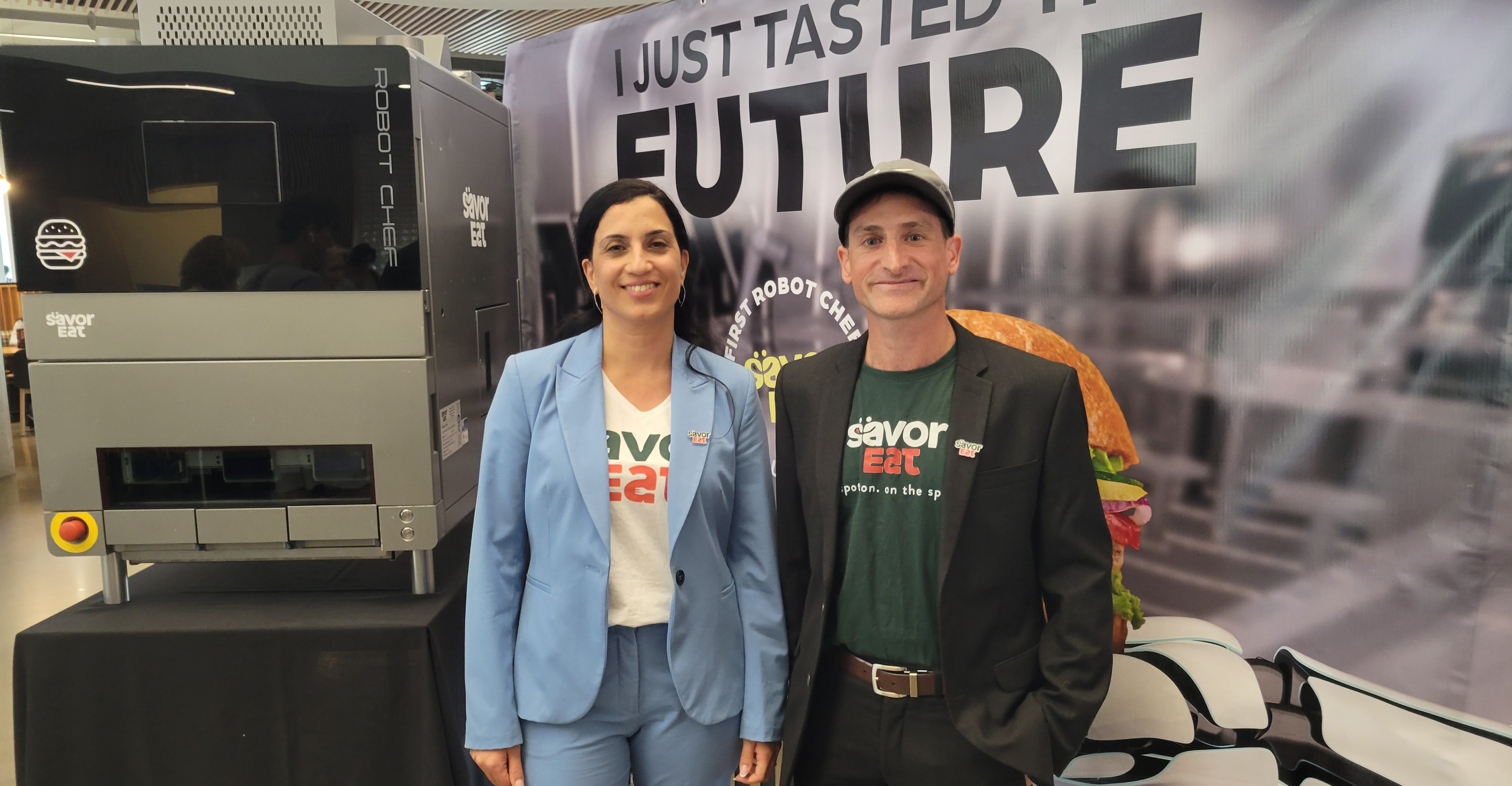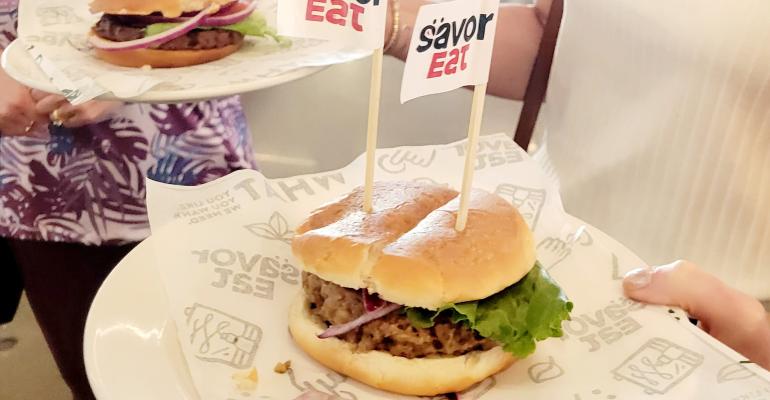The latest in robotic vegan cookery has landed at Denver University.
SavorEat, an Israeli tech company has installed its Robot Chef on campus in partnership with the college’s foodservice provider, Sodexo.
"We are ready to accelerate our success here in the U.S., and Colorado is just the initial step for us," said Racheli Vizman, co-founder and CEO of SavorEat. “We see [the popularity] already in the feedback that we're getting [from the students]."
Robot Chef is a metal box surrounding a 3D printer with three cartridges containing oils and other ingredients. The machine responds to orders placed via a tablet, which triggers it to cook, assemble and dish out the meal. It can create three plant-based dishes every five minutes.
"Ultimately, it's for any establishment that needs help with healthy foodservice options, which could be airports, cruise lines, military bases, and so on," Vizman said.
She founded the company in 2018 with partner Ido Braslavsky and chief scientist Oded Shoseyov. She came up with the idea because she needed to follow a restrictive diet due to personal health reasons. She craved variety in the field, as well as healthy, quick options. Now, her solution may push the field of plant-based burgers to another level, as well as fill gaps where the service is needed.

Co-founder Racheli Vizman and vice president of research & development Shai Sultan
The way the SavorEat team sees it, foodservice operators can benefit when it comes to staffing challenges, and Robot Chef also helps reduce food waste and could attract more customers to the plant-based lifestyle, which could be a boon to their own health and the health of the planet.
The cost for the machine, including installation, service, data analysis and software updates, ranges between $1,500 and $2,000 per month. By comparison, in Colorado, where the minimum wage $13.65, an employee working 40 hours a week would make at least $2,184, and Robot Chef can work longer hours and doesn’t need time off.
The machine is designed to be operated by employees, however, and all parts in direct contact with food can be removed and washed in a dishwasher. Robot Chef also needs to be stocked with fresh ingredients, as well as SavorEat's propitiatory protein and ingredient cartridges used for the burgers.
At D.U., the price of the burger is included in students’ meal plan, but Vizman said Robot Chef’s burgers typically cost $9-$15, depending on the build.
Modifications that can be made by its Denver customers include lowering fat content or adding more protein. Other models can also change the size of the patty from 2.7-ounces up to 4.7-ounces. Vizman anticipates adding other options, including other menu items, and possibly meat-based burgers.
"Aside from a lot of burgers, we get a lot of data," said Shai Sultan, vice president of recipe and development for SavorEat. "We can tell what people like most, or less, and we can even anticipate trends, all from using the AI."





